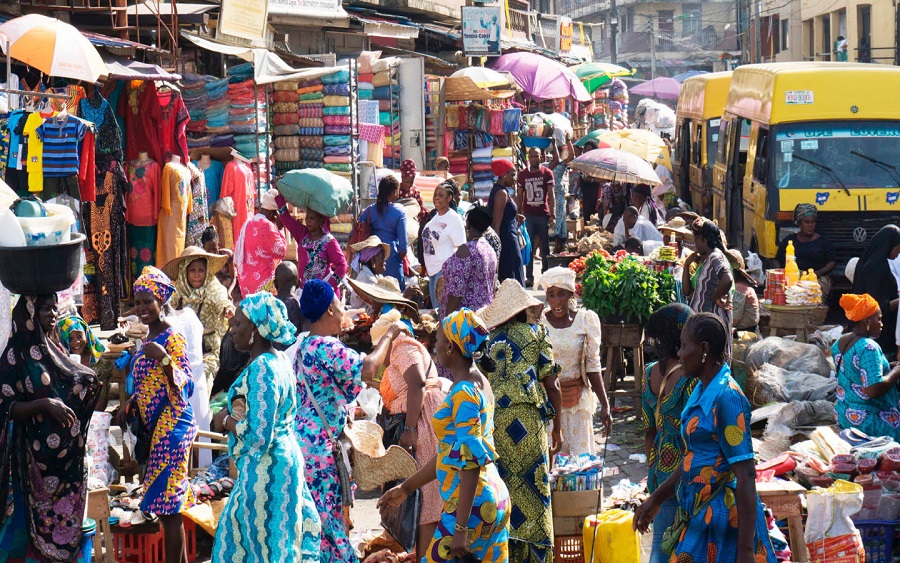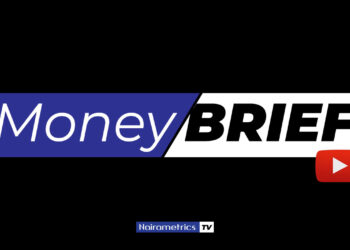Based on the recently-released numbers for Q4 2021, Nigeria’s Gross Domestic Product (GDP) grew by 3.98% y/y in real terms in the fourth quarter of 2021, sustaining positive growth for the fifth quarter since the recession in 2020 when output contracted by -6.10% and -3.62% in Q2 and Q3 of 2020, at the heat of the Covid-19 pandemic.
The fourth-quarter growth brought the 2021 annual growth to 3.4%. Growth strengthened in 2021, supported
by base effect in the non-oil sector, while the oil sector remained uninspiring. The growth in the non-oil sector outperformed expectations, as heavy-weight sectors like trade and real estate, recorded the first full year growth in six years.
While the growth in the trade sector could suggest improving domestic demand, the local labour market is yet to recover to the pre-pandemic level, as unemployment remains high and double-digit inflation continues to erode purchasing power. Private sector credit grew significantly in 2021, pushing manufacturing GDP to a 5-year high of 3.35%.
The oil sector growth remained negative despite a better average price of Brent Crude in Q4 2021 compared with Q3 2021 due to reduced production. Brent crude averaged US$79.66/bl in Q4, an increase of 8.78% over the average price of US$73.23/bl in Q3. However, average daily oil production for the fourth quarter was 1.50mbpd, lower than the third quarter 2021 production volume of 1.57mbpd. The uninspiring output was largely due to crude oil terminal maintenance, shutdown, and reduced investments.
Real growth of the oil sector was –8.06% y/y in Q4 2021. Growth increased by 2.68% points when compared to Q3 2021, which was –10.73%. Annual growth stood at -8.30%, better than the -8.89% recorded in 2020. The sector contributed 7.24% to real GDP in 2021. We project crude oil production (including condensates) to reach 1.75mb/d in 2022.
While this is an improvement from 2021 levels, it still lags the 5-year average of 1.85mb/d. We expect the continued elevated crude oil price, coupled with the passage of the PIB, to incentivize drilling activities. Beyond this, we expect the commencement of 160,000 Amukpe-Escravos export terminals in H2 2022 to support crude oil production.
The non-oil sector grew by 4.73% in real terms in Q4 2021, 0.71% lower than the third quarter of 2021. Growth in the sector in the fourth quarter of 2021 was driven mainly by Agriculture (crop production); trade; Information and Communication(Telecommunication); and Financial and Insurance (Financial Institutions). The non-oil sector contributed 92.76% to the nation’s GDP in 2021.
The agricultural sector slumped to the lowest level since 2018, as growth settled at 1.22% in Q3 2021 but improved to 3.58% in Q4 2021, bringing annual growth to 2.13%. The weakened output reflects persistent security challenges in the country.
We expect the sector to remain resilient in 2022, supported by CBN Agro interventions. We project growth to settle at 2.30% in 2022. Growth in the services sector declined in Q4 to 5.58% from 8.41% in Q3, bringing 2021 growth to 5.61%. We expect growth to strengthen in 2022, supported by the growth in the ICT and Trade sectors.
CSL Stockbrokers Limited, Lagos (CSLS) is a wholly owned subsidiary of FCMB Group Plc and is regulated by the Securities and Exchange Commission, Nigeria. CSLS is a member of the Nigerian Stock Exchange.























